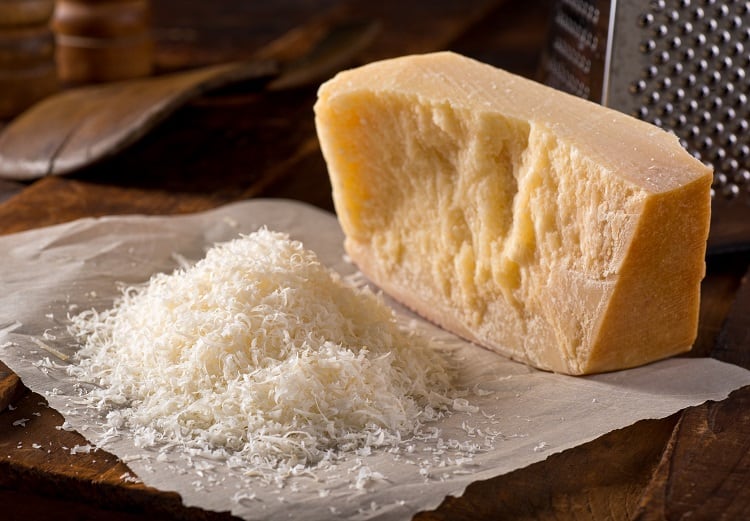Nicknamed the ‘king of cheeses’ in Italy, Parmigiano Reggiano is exported around the world. In 2020, an estimated 3.94m wheels of the protected designation of origin (PDO) product was made – corresponding to around 6,000 tons. In annual turnover, this equates to around €2.35bn.
Not all cheese that claims to be the sought-after Parmigiano Reggiano, however, actually is. According to the Parmigiano Reggiano Cheese Consortium, the estimated global turnover of counterfeit parmesan stands at around $2bn.
In an effort to deter counterfeit practices, the consortium – which works to promote authentic Parmigiano Reggiano – has partnered with p-Chip Corporation and Kaasmerk Matec on a digital label designed to improve authenticity and traceability.
“We are proud to be the first [PDO] consortium to introduce these digital and safe labels to guarantee an even more protected and traced product,” said consortium president Nicola Bertinelli.
Beyond certification
The partnership is founded on technology developed by US-headquartered p-Chip Corporation, a company that has developed a trackable, silicon microchip smaller than a grain of salt.
According to p-Chip, the serialised tracker acts like a ‘digital anchor’ for physical products and is ‘virtually impossible’ to duplicate or counterfeit. p-Chip micro-transponders can tolerate extreme temperatures, high g-forces, and hold up against solvents and reagents.
Dutch company Kaasmerk Matec is bringing a ‘cheese mark’ – made from a mixture of casein, glycerol and alcohol – to the collaboration. Applied to the cheese at the beginning of the cheese production process, the mark certifies the origin of the cheese for producers and consumers.
The consortium first introduced Kaasmerk’s casein mark in 2002, onto which it applies an alphanumeric code and a QR code, to ensure the cheese’s origin is identifiable anywhere in the world. Now, this system is being taken to a ‘higher level’.
An integrated approach
Kaasmerk and p-Chip have combined their technologies by integrated the p-Chip device into the casein cheese mark.
“We are delighted to partner with a world-leading brand like Parmigiano Reggiano to bring revolutionary and world-class tracking technology to the food industry,” said Joe Wagner, CEO of p-Chip Corporation.
“By integrating p-Chip micro transponders into casein labels, the Parmigiano Reggiano Consortium can better control its inventory, protect and differentiate its products from similar brands, and have access to unparalleled track-and-trace technology to protect itself I the event of recalls or other problems.”
The consortium has conducted ‘extensive’ tests on the p-Chip/Kaasmerk label over the past two years. It will now be applied to 100,000 wheels of Parmigiano Reggiano in the second quarter of 2022.
This represents the final phase of large-scale ‘testing’, before evaluating the possibility of extending the technology to the entire production of Parmigiano Reggiano.


